Eco-friendly upgrades for your Dallas home
Making eco-friendly upgrades to your home in Dallas can have a multitude of benefits. Not only can these improvements reduce your environmental footprint, but they can also enhance your home’s comfort, increase its value, and potentially lower your utility bills. This guide will explore various eco-friendly upgrades suitable for Dallas homes, covering everything from energy efficiency to sustainable landscaping.
Benefits of Eco-Friendly Home Upgrades
Investing in eco-friendly home upgrades offers several advantages. These include:
- Reduced Energy Bills: Energy-efficient upgrades can significantly lower your monthly utility costs.
- Environmental Impact: Using sustainable materials and technologies helps reduce your carbon footprint.
- Increased Home Value: Green homes often have higher market values and appeal to environmentally conscious buyers.
- Enhanced Comfort: Many eco-friendly improvements, such as better insulation and efficient heating and cooling systems, enhance indoor comfort.
Energy-Efficient Windows
Windows are a crucial aspect of any home, affecting both aesthetics and energy efficiency. Energy-efficient windows can reduce heat transfer, keeping your home cooler in the summer and warmer in the winter.
- Double or Triple Glazing: These windows have multiple panes of glass with insulating gas between them, improving thermal efficiency.
- Low-E Coatings: Low-emissivity coatings reflect heat while allowing light to pass through, helping maintain indoor temperatures.
- Proper Installation: Ensure windows are properly sealed and installed to prevent drafts and leaks.
Solar Panels
Dallas’s abundant sunshine makes solar panels an excellent investment for eco-conscious homeowners. Solar panels convert sunlight into electricity, reducing reliance on fossil fuels.
- Photovoltaic (PV) Panels: These panels generate electricity directly from sunlight and can significantly cut your electricity bills.
- Solar Water Heaters: Use solar energy to heat your home’s water, reducing the need for conventional water heaters.
- Net Metering: Many utility companies offer net metering, allowing you to sell excess electricity generated by your solar panels back to the grid.
Insulation and Weatherproofing
Proper insulation and weatherproofing are essential for maintaining a comfortable indoor environment and reducing energy consumption.
- Attic Insulation: Adding insulation to your attic can prevent heat loss in winter and keep your home cooler in summer.
- Wall Insulation: Insulating your walls helps maintain a consistent indoor temperature and reduces the load on your HVAC system.
- Weatherstripping: Seal gaps around doors and windows with weatherstripping to prevent drafts and improve energy efficiency.
Energy-Efficient HVAC Systems
Heating, ventilation, and air conditioning (HVAC) systems are major energy consumers in most homes. Upgrading to an energy-efficient system can have a significant impact on your energy usage.
- High-Efficiency Furnaces and Air Conditioners: Look for units with high Seasonal Energy Efficiency Ratios (SEER) and Annual Fuel Utilization Efficiency (AFUE) ratings.
- Heat Pumps: Heat pumps are efficient for both heating and cooling and can be a good option for Dallas’s climate.
- Programmable Thermostats: These devices allow you to set temperature schedules, reducing energy use when you’re not home.
Water Conservation
Water conservation is especially important in Dallas, where water resources can be strained during hot, dry summers.
- Low-Flow Fixtures: Install low-flow showerheads, faucets, and toilets to reduce water usage without sacrificing performance.
- Rainwater Harvesting: Collect rainwater for irrigation and other non-potable uses, reducing your reliance on municipal water supplies.
- Smart Irrigation Systems: These systems use weather data and soil sensors to optimize watering schedules, conserving water while maintaining a healthy landscape.
Sustainable Landscaping
Eco-friendly landscaping practices can enhance your home’s curb appeal while conserving resources and supporting local ecosystems.
- Native Plants: Choose native plants that are adapted to Dallas’s climate, requiring less water and maintenance.
- Xeriscaping: Design your landscape to minimize water use, incorporating drought-tolerant plants and efficient irrigation methods.
- Composting: Compost kitchen and yard waste to create nutrient-rich soil for your garden, reducing the need for chemical fertilizers.
Green Building Materials
Using sustainable building materials is another way to make your home more eco-friendly. These materials often have a lower environmental impact and can improve indoor air quality.
- Recycled Materials: Consider products made from recycled content, such as reclaimed wood, recycled metal, and glass tiles.
- Sustainable Wood: Choose wood products certified by the Forest Stewardship Council (FSC) to ensure they come from responsibly managed forests.
- Low-VOC Paints and Finishes: Volatile organic compounds (VOCs) can negatively affect indoor air quality. Opt for low-VOC paints and finishes to create a healthier living environment.
Efficient Lighting
Upgrading your lighting can significantly reduce energy consumption and enhance your home’s ambiance.
- LED Bulbs: Light-emitting diode (LED) bulbs use up to 75% less energy than traditional incandescent bulbs and last much longer.
- Smart Lighting Systems: These systems allow you to control your lights remotely, set schedules, and adjust brightness, further enhancing energy savings.
- Natural Lighting: Maximize natural light by strategically placing windows, skylights, and light tubes, reducing the need for artificial lighting during the day.
Energy-Efficient Appliances
Replacing old, inefficient appliances with energy-efficient models can lead to substantial energy savings.
- ENERGY STAR® Appliances: Look for appliances with the ENERGY STAR® label, indicating they meet energy efficiency guidelines set by the U.S. Environmental Protection Agency.
- Efficient Dishwashers and Washing Machines: These appliances use less water and energy, contributing to lower utility bills.
- Induction Cooktops: Induction cooktops are more energy-efficient than traditional gas or electric stoves and offer precise temperature control.
Home Automation and Smart Technology
Incorporating smart technology into your home can enhance energy efficiency and convenience.
- Smart Thermostats: As mentioned earlier, programmable thermostats can significantly reduce energy use by optimizing heating and cooling schedules.
- Smart Plugs and Power Strips: These devices allow you to control the power usage of individual electronics, reducing standby power consumption.
- Home Energy Monitoring Systems: These systems provide real-time data on your energy use, helping you identify areas for improvement and track your savings.
Green Roofs and Cool Roofs
Roofing choices can have a major impact on your home’s energy efficiency and environmental footprint.
- Green Roofs: Green roofs are covered with vegetation, providing insulation, reducing stormwater runoff, and improving air quality.
- Cool Roofs: Cool roofs are designed to reflect more sunlight and absorb less heat, keeping your home cooler and reducing the need for air conditioning.
Rain Gardens and Permeable Pavements
Managing stormwater runoff is an important aspect of sustainable landscaping and can help prevent flooding and water pollution.
- Rain Gardens: These gardens are designed to absorb and filter rainwater, reducing runoff and recharging groundwater.
- Permeable Pavements: Permeable paving materials allow water to pass through, reducing runoff and promoting natural infiltration.
Solar Water Heating
Solar water heating systems use solar energy to heat water for your home, reducing the need for conventional water heaters.
- Active Solar Water Heating: These systems use pumps to circulate water through solar collectors, providing a reliable and efficient source of hot water.
- Passive Solar Water Heating: Passive systems rely on natural convection to circulate water, offering a simpler and often more affordable solution.
Greywater Systems
Greywater systems recycle water from sinks, showers, and washing machines for use in irrigation and other non-potable applications.
- Greywater Recycling: Install a greywater recycling system to reduce water waste and conserve resources.
- Regulatory Considerations: Ensure your greywater system complies with local regulations and plumbing codes.
Indoor Air Quality Improvements
Improving indoor air quality is an important aspect of creating a healthy and eco-friendly home.
- Air Purifiers: Use air purifiers to remove pollutants, allergens, and volatile organic compounds (VOCs) from the air.
- Ventilation Systems: Proper ventilation helps maintain indoor air quality by removing stale air and introducing fresh air.
- Houseplants: Incorporate houseplants that can improve indoor air quality by filtering toxins and releasing oxygen.
Home Insulation Upgrades
Upgrading your home’s insulation can significantly improve energy efficiency and indoor comfort.
- Spray Foam Insulation: Spray foam insulation provides an excellent air seal and can be used in walls, attics, and crawl spaces.
- Blown-In Insulation: Blown-in insulation is a versatile option that can be added to existing walls and attics.
- Reflective Insulation: Reflective insulation, such as radiant barriers, helps reduce heat gain in the summer, keeping your home cooler.
Efficient Water Heating
Upgrading to an efficient water heating system can reduce energy consumption and improve your home’s sustainability.
- Tankless Water Heaters: Tankless water heaters provide hot water on demand, eliminating the energy waste associated with maintaining a tank of hot water.
- Heat Pump Water Heaters: Heat pump water heaters use electricity to move heat from one place to another, offering a highly efficient way to heat water.
Incorporating eco-friendly upgrades into your Dallas home can provide numerous benefits, from reducing your environmental impact to enhancing your comfort and saving on utility bills. By focusing on energy efficiency, water conservation, sustainable materials, and smart technology, you can create a greener, more sustainable living space that aligns with your values and meets the demands of modern living. Whether you’re considering a major renovation or a few small changes, there are plenty of options to make your home more eco-friendly and sustainable.
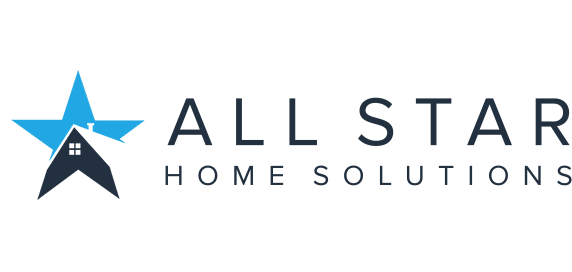
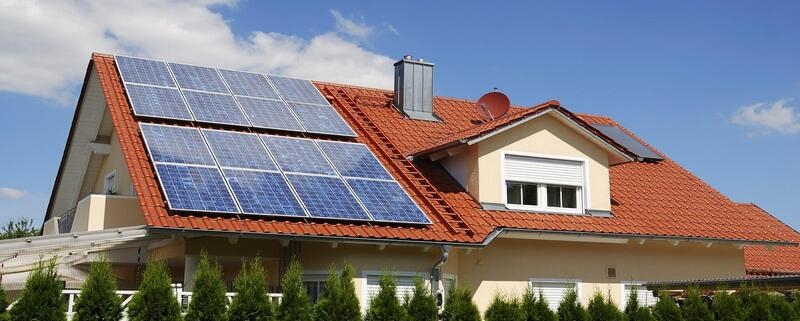
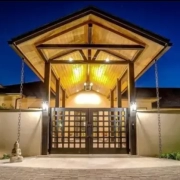
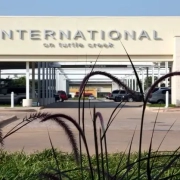
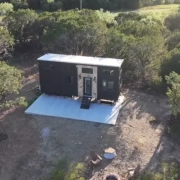
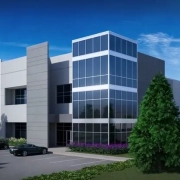
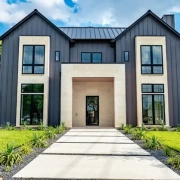

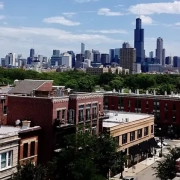
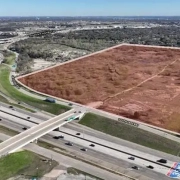






Leave a Reply
Want to join the discussion?Feel free to contribute!